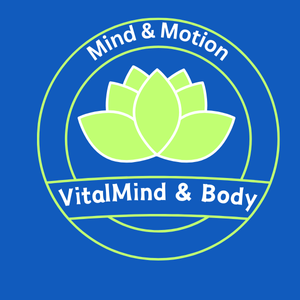
Stress Management Techniques
Stress is an inevitable part of life, but it can have severe consequences on our mental and physical well-being if left unmanaged. Chronic stress can lead to anxiety, depression, and even physical health problems like hypertension and cardiovascular disease. Fortunately, there are many effective stress management techniques that can help you cope with stress and lead a healthier, happier life.
Key Takeaways
- Identify and manage stress triggers
- Practice relaxation techniques like meditation and deep breathing
- Engage in physical activity to reduce stress
- Get enough sleep and maintain a healthy diet
- Seek social support from friends, family, or a therapist
Understanding Stress
Stress is a natural response to a perceived threat or change in our environment. When we feel stressed, our body's "fight or flight" response is triggered, releasing stress hormones like cortisol and adrenaline. While this response was essential for our ancestors' survival, chronic stress can have negative effects on our health.
Types of Stress
| Type of Stress | Description |
|---|---|
| Acute Stress | Short-term stress caused by a specific event or situation |
| Chronic Stress | Long-term stress caused by ongoing situations or pressures |
| Episodic Stress | Repeated instances of acute stress caused by similar events or situations |
Relaxation Techniques for Stress Management
Relaxation techniques can help reduce stress and anxiety by calming the mind and body. Some effective relaxation techniques include:
- Meditation: Focus on your breath or a mantra to calm your mind
- Deep Breathing: Slow, deliberate breathing to slow down your heart rate
- Progressive Muscle Relaxation: Tense and relax different muscle groups to release tension
- Yoga: Combine physical postures, breathing techniques, and meditation for a holistic approach

Physical Activity for Stress Relief
Regular physical activity can help reduce stress and anxiety by releasing endorphins, also known as "feel-good" hormones. Some stress-relieving activities include:
- Walking or Jogging: Improve your mood with a brisk walk or jog
- Yoga: Combine physical postures, breathing techniques, and meditation for a holistic approach
- Cycling: Ride a bike to clear your mind and improve your mood
- Swimming: Engage in a low-impact, relaxing aquatic activity

Lifestyle Changes for Stress Management
In addition to relaxation techniques and physical activity, making lifestyle changes can help manage stress. Some effective changes include:
- Getting Enough Sleep: Aim for 7-8 hours of sleep per night
- Maintaining a Healthy Diet: Focus on whole, nutrient-rich foods
- Seeking Social Support: Talk to friends, family, or a therapist about your stress
- Time Management: Prioritize tasks and take regular breaks to reduce stress

Conclusion
Stress management is crucial for maintaining good mental and physical health. By identifying and managing stress triggers, practicing relaxation techniques, engaging in physical activity, and making lifestyle changes, you can reduce stress and improve your overall well-being.
Pros
- Effective stress management techniques can improve mental and physical health
- Relaxation techniques can reduce anxiety and improve mood
- Physical activity can release endorphins and improve overall health
Cons
- Stress management requires effort and commitment
- Some relaxation techniques may not be effective for everyone
- Lifestyle changes can be challenging to implement








